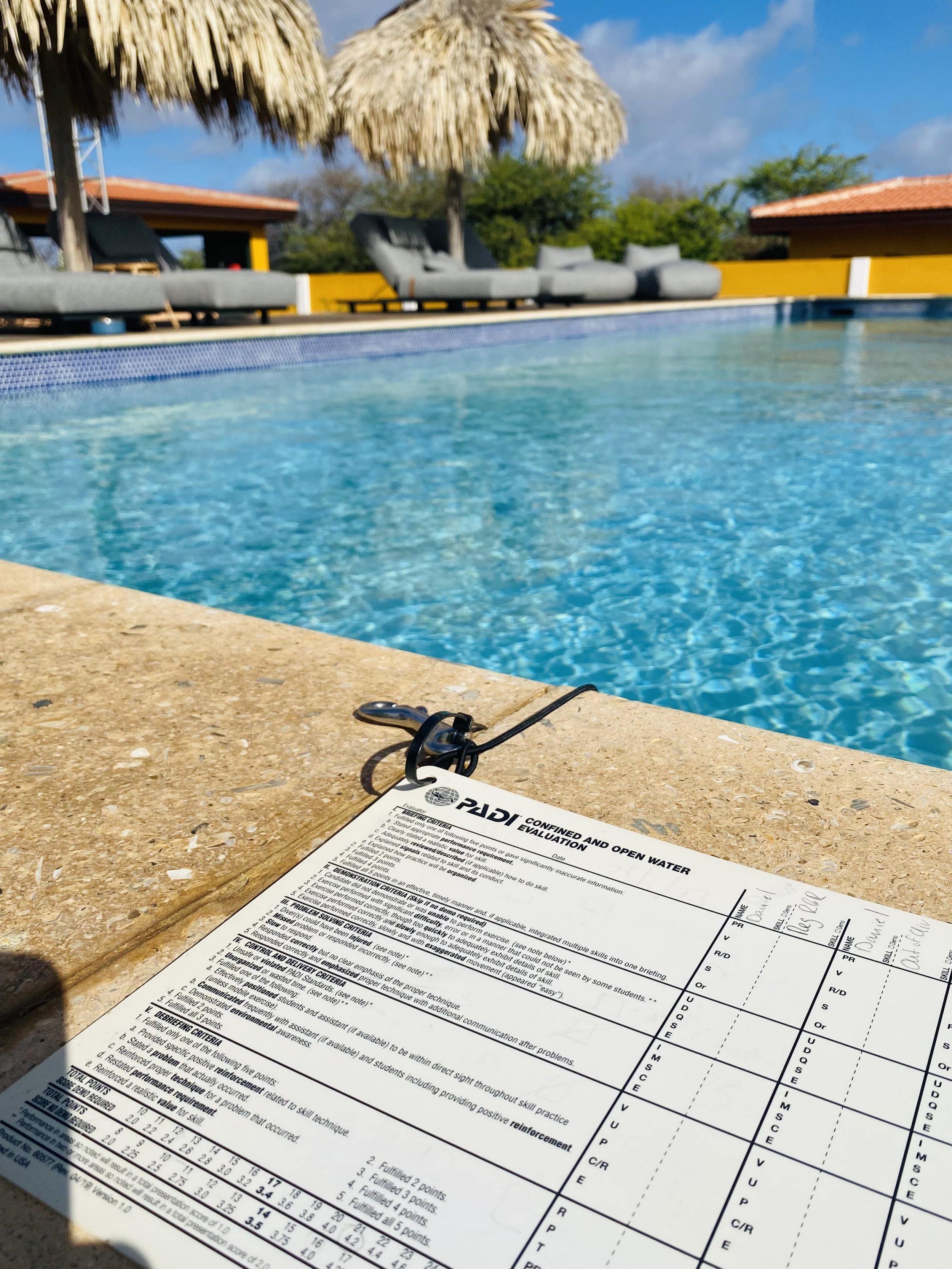Becoming a PADI Instructor: What to Consider Before Taking the Plunge
Becoming a PADI Instructor is an exciting journey that can transform your passion for scuba diving into a rewarding career. However, before you take the plunge into the Instructor Development Course (IDC), there are essential considerations to ensure you're fully prepared for this life-changing experience. Let's explore what you should keep in mind.
Imagine having this as your office view after successfully passing the Instructor Examination….
1. Dive Experience and Skill Level
To enroll in the PADI IDC, you must meet certain prerequisites, including a minimum number of logged dives and certifications. Ensure that you have the required dive experience and skill level before considering the IDC. It's essential to feel comfortable and confident in the water as you'll be teaching and guiding others.
Prerequisites to become a PADI OWSI
Certified PADI Assistant Instructor or a leadership level diving certification from another recognized recreational diver training organization
Be a certified diver for at least 6 months
18 years old
Completed Emergency First Responder (EFR) Primary and Secondary Care training within 24 months, or hand over a certificate of completion from an equivalent training organization which we can verify with PADI.
Medically evaluated and cleared for diving by a physician within 12 months. Download the Dive Medical Form here.
2. Time Commitment
The IDC is an intensive program that typically spans several days or weeks. Consider your availability and schedule to ensure you can commit the necessary time for both the course and the preparation. If you are currently having a 9-5 job, struggle to find time but still wish to deepen your diving career. Please read our earlier published article about why you can become PADI OWSI and have a 9-5 job.
3. Financial Investment
Becoming a PADI Instructor involves financial costs, including course fees, materials, and examination fees. Plan your budget accordingly and factor in additional expenses like equipment and travel if needed.
4. Pre-IDC Preparation
During the IDC you learn how to teach diving to student divers. Workshops are all about learning the PADI system of teaching and does not focus on your 24 skills, which you learned during your PADI Divemaster course. Before enrolling in the IDC, it's advisable to review your diving knowledge, skills, and theory. Brush up on dive theory, dive physics, physiology, and equipment. Being well-prepared will boost your confidence during the course.
5. Passion for Teaching
Teaching scuba is more than just sharing knowledge: it's about inspiring and guiding divers. Do you have a passion for teaching? And are you able to communicate effectively with students? A genuine enthusiasm for teaching will make your journey as an instructor more fulfilling.
6. Instructor Development Centers
Finding the perfect dive shop for your training is a crucial step. Here are some tips: choose a reputable Instructor Development Center or Resort (IDC) with an experienced Course Director and a strong track record. Research IDCs and find out where they focus on during their training. Is the shop considered environmentally friendly and does it actively join conservation activities? Read guest reviews to gauge the professionalism of the dive shop, and engage in conversations with instructors to ensure they align with your learning style.
7. Career Goals
Consider your long-term career goals in the diving industry. Are you looking to work at a local dive shop on a specific location in the world or specialize in specific types of diving? Your career path may influence the additional training and specialties you pursue. Check for example in advance in the dive shop offers specific Instructor specialty training.
8. Personal Commitment
The IDC demands dedication and personal commitment. You'll face challenges and long hours of preparation and teaching. Ensure you're mentally and emotionally prepared for the journey!
9. Lifelong Learning
Becoming an instructor is just the beginning of your professional diving career. Commit to lifelong learning and continuous improvement to stay up-to-date with industry trends and safety practices. Join the quarterly instructor updates from PADI and develop your skills by becoming Specialty Instructor. One of the most rewarding ones would be for example to teach Reef Renewal.
10. Mentorship and Support
Seek guidance and support from experienced instructors and mentors who can provide valuable insights and advice as you embark on this career path. PADI Instructors are always open to share their story with you. Connect in communities on social media or hop on a call with your Instructor Development Resort of choice. They are more than happy to answer all your questions about the next big step you are going to take.
In conclusion, the decision to take your PADI Instructor Course is a significant one. By considering these key factors and tips, you'll be better equipped to make an informed choice and embark on a successful and rewarding journey as a PADI Instructor.
Remember, it's not just about becoming an instructor; it's about sharing your passion for the underwater world, inspire the next generation of divers and contribute to conservation even more significantly!
The Scuba Elite Academy teaches their Confined Training workshops at one of the biggest pool on Bonaire.




